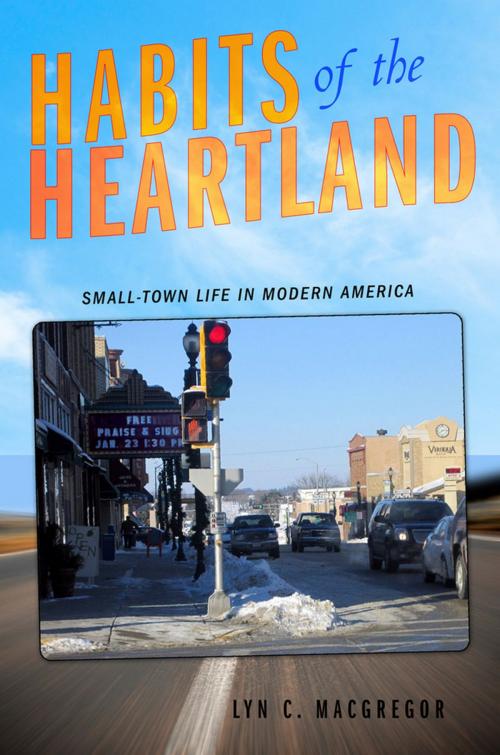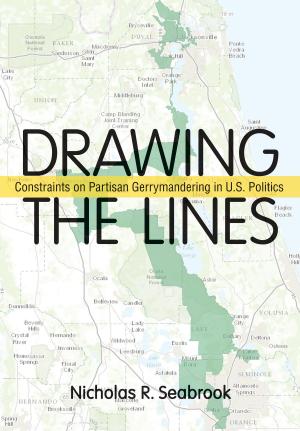Habits of the Heartland
Small-Town Life in Modern America
Nonfiction, Social & Cultural Studies, Social Science, Sociology, Rural| Author: | Lyn C. Macgregor | ISBN: | 9780801457739 |
| Publisher: | Cornell University Press | Publication: | December 15, 2009 |
| Imprint: | Cornell University Press | Language: | English |
| Author: | Lyn C. Macgregor |
| ISBN: | 9780801457739 |
| Publisher: | Cornell University Press |
| Publication: | December 15, 2009 |
| Imprint: | Cornell University Press |
| Language: | English |
"So, how do Americans in a small town make community today? This book argues that there is more than one answer, and that despite the continued importance of small-town stuff traditionally associated with face-to-face communities, it makes no sense to think that contemporary technological, economic, and cultural shifts have had no impact on the ways Americans practice community life. Instead, I found that different Viroquans took different approaches to making community that reflected different confluences of moral logics—their senses of obligation to themselves, to their families, to Viroqua, and to the world beyond it, and about the importance of exercising personal agency. The biggest surprise was that these ideas about obligation and agency, and specifically about the degree to which it was necessary or good to try to bring one's life into precise conformance with a set of larger goals, turned out to have replaced more traditional markers of social belonging like occupation and ethnicity, in separating Viroquans into social groups."—from Habits of the Heartland
Although most Americans no longer live in small towns, images of small-town life, and particularly of the mutual support and neighborliness to be found in such places, remain powerful in our culture. In Habits of the Heartland Lyn C. Macgregor investigates how the residents of Viroqua, Wisconsin, population 4,355, create a small-town community together. Macgregor lived in Viroqua for nearly two years. During that time she gathered data in public places, attended meetings, volunteered for civic organizations, talked to residents in their workplaces and homes, and worked as a bartender at the local American Legion post.
Viroqua has all the outward hallmarks of the idealized American town; the kind of place where local merchants still occupy the shops on Main Street and everyone knows everyone else. On closer examination, one finds that the town contains three largely separate social groups: Alternatives, Main Streeters, and Regulars. These categories are not based on race or ethnic origins. Rather, social distinctions in Viroqua are based ultimately on residents' ideas about what a community is and why it matters. These ideas both reflect and shape their choices as consumers, whether at the grocery store, as parents of school-age children, or in the voting booth. Living with—and listening to—the town's residents taught Macgregor that while traditional ideas about "community," especially as it was connected with living in a small town, still provided an important organizing logic for peoples' lives, there were a variety of ways to understand and create community.
"So, how do Americans in a small town make community today? This book argues that there is more than one answer, and that despite the continued importance of small-town stuff traditionally associated with face-to-face communities, it makes no sense to think that contemporary technological, economic, and cultural shifts have had no impact on the ways Americans practice community life. Instead, I found that different Viroquans took different approaches to making community that reflected different confluences of moral logics—their senses of obligation to themselves, to their families, to Viroqua, and to the world beyond it, and about the importance of exercising personal agency. The biggest surprise was that these ideas about obligation and agency, and specifically about the degree to which it was necessary or good to try to bring one's life into precise conformance with a set of larger goals, turned out to have replaced more traditional markers of social belonging like occupation and ethnicity, in separating Viroquans into social groups."—from Habits of the Heartland
Although most Americans no longer live in small towns, images of small-town life, and particularly of the mutual support and neighborliness to be found in such places, remain powerful in our culture. In Habits of the Heartland Lyn C. Macgregor investigates how the residents of Viroqua, Wisconsin, population 4,355, create a small-town community together. Macgregor lived in Viroqua for nearly two years. During that time she gathered data in public places, attended meetings, volunteered for civic organizations, talked to residents in their workplaces and homes, and worked as a bartender at the local American Legion post.
Viroqua has all the outward hallmarks of the idealized American town; the kind of place where local merchants still occupy the shops on Main Street and everyone knows everyone else. On closer examination, one finds that the town contains three largely separate social groups: Alternatives, Main Streeters, and Regulars. These categories are not based on race or ethnic origins. Rather, social distinctions in Viroqua are based ultimately on residents' ideas about what a community is and why it matters. These ideas both reflect and shape their choices as consumers, whether at the grocery store, as parents of school-age children, or in the voting booth. Living with—and listening to—the town's residents taught Macgregor that while traditional ideas about "community," especially as it was connected with living in a small town, still provided an important organizing logic for peoples' lives, there were a variety of ways to understand and create community.















